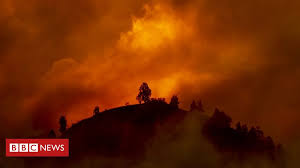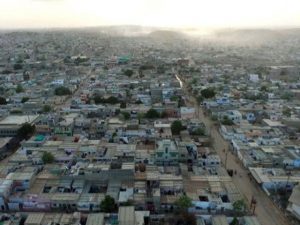Nov 27 2019
A Few Thoughts Concerning Climate Change

For decades I have consciously avoided giving my opinion about climate change, not wanting to undercut the fundamental belief of climate change activists everywhere. That belief goes something like this: we must radically reduce the amount of greenhouse gasses that we kick into the atmosphere, as soon as possible, to avoid a global warming catastrophe.
Unlike climate change deniers, who have their heads in the sand, I don’t shy away from the overwhelming amount of scientific facts that point to climate change, or the climatological realities on this planet during the past 4 billion years. I simply believe that it is already too late to avoid global warming, that it was too late when we first became aware of the problem in the middle of the last century. After all, industrialization has been underway for hundreds of years. All we can really do now is damage control, and it may be a while longer before we even get serious about that.
The last thing I want is to be called is a prophet of doom. That’s why I avoid writing or talking about climate change as a general rule. But a recent article in BBC News paints a picture of the near future that is as bad if not worse than anything I can imagine. The amount of greenhouse gases we are kicking into the atmosphere is increasing, from year to year. And 15 of the top 20 richest, most industrialized nations don’t even have a net zero target. Add to this the harsh reality that the two biggest polluters, China and the USA, are effectively doing nothing, and it’s a fine stew indeed.
The problem, in a nutshell, is human nature. There are 7.7 billion of us on this planet – a number that keeps going up – and we all want the finer things in life, such as automobiles. Some of us have these finer things, others are just now getting them, and still others are waiting to get them.
There exists the technology now for us to manufacture and operate these finer things while making a much smaller impact on the planet, but the costs will go up if/when we go that route and we don’t like that. More to the point, retooling not just one industry but all of them, in addition to completely changing our infrastructure, well, it’s not something that’s going to happen overnight. The fact that humankind is subdivided into 200 nations and countless religions, ideologies and other opposing worldviews doesn’t help matters either. It would take cooperation and commitment on a scale never before seen in human history to pull off even a modest reduction in greenhouse gasses in the atmosphere. A tall order, indeed.
One could argue that the problem began with agriculture practiced on a large scale at the beginning of civilization 10,000 years ago. That’s what enabled our population to grow. A little Malthusian math makes it clear that we can’t keep having babies and growing more food for them indefinitely. Forget the finer things in life. How are we going to feed everyone without having a major impact on the planet? But that’s a longterm problem, isn’t it? Maybe not. Climate change could make it difficult to grow food. Food will be a lot more expensive in the near future, to say the least.
“Bleak” is the word used by the authors of the latest UN report on carbon emissions, so don’t call me a prophet of doom. I’d love to be proven wrong in my assessment of human nature. In fact, there’s nothing I’d like more than to see all of humankind come together to tackle the problem while our efforts can make any difference at all. But I’m not holding my breath. We still have climate change deniers to contend with, not to mention determining whose fault all this is. Yeah, once the deniers are gone, then we’ll get serious about playing the blame game. That is, after all, how humankind goes about things.
Comments Off on A Few Thoughts Concerning Climate Change


